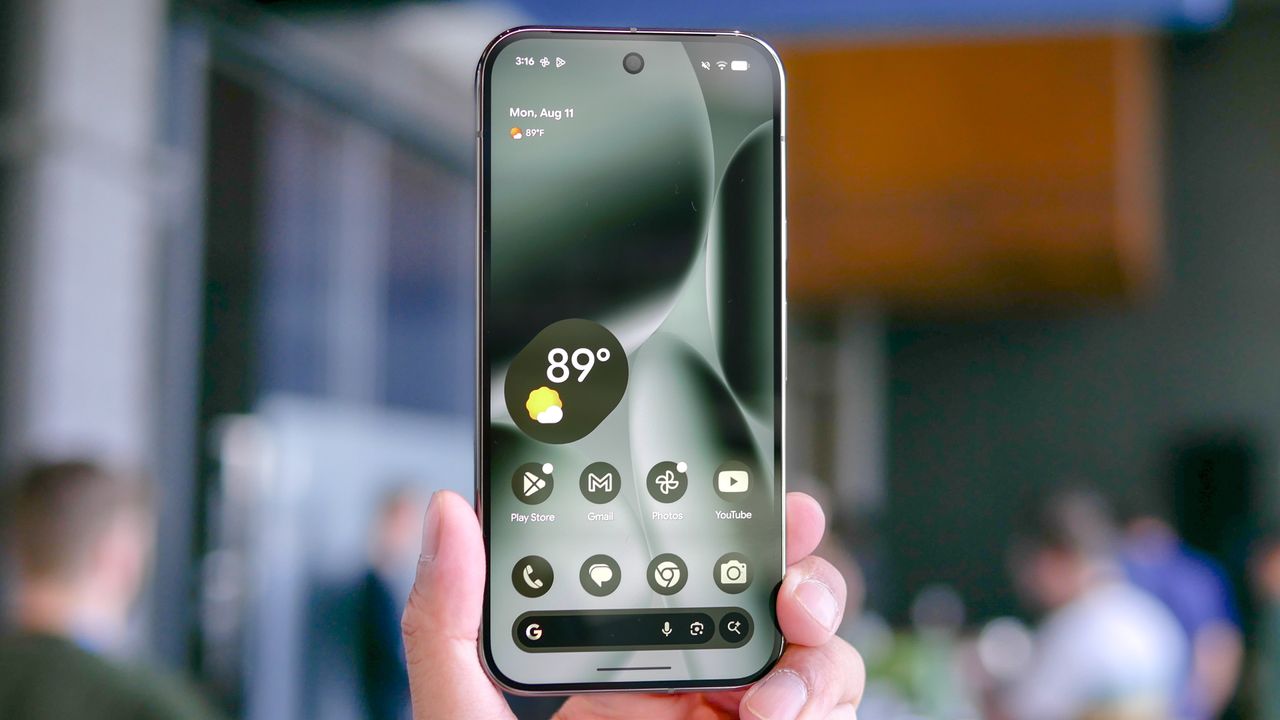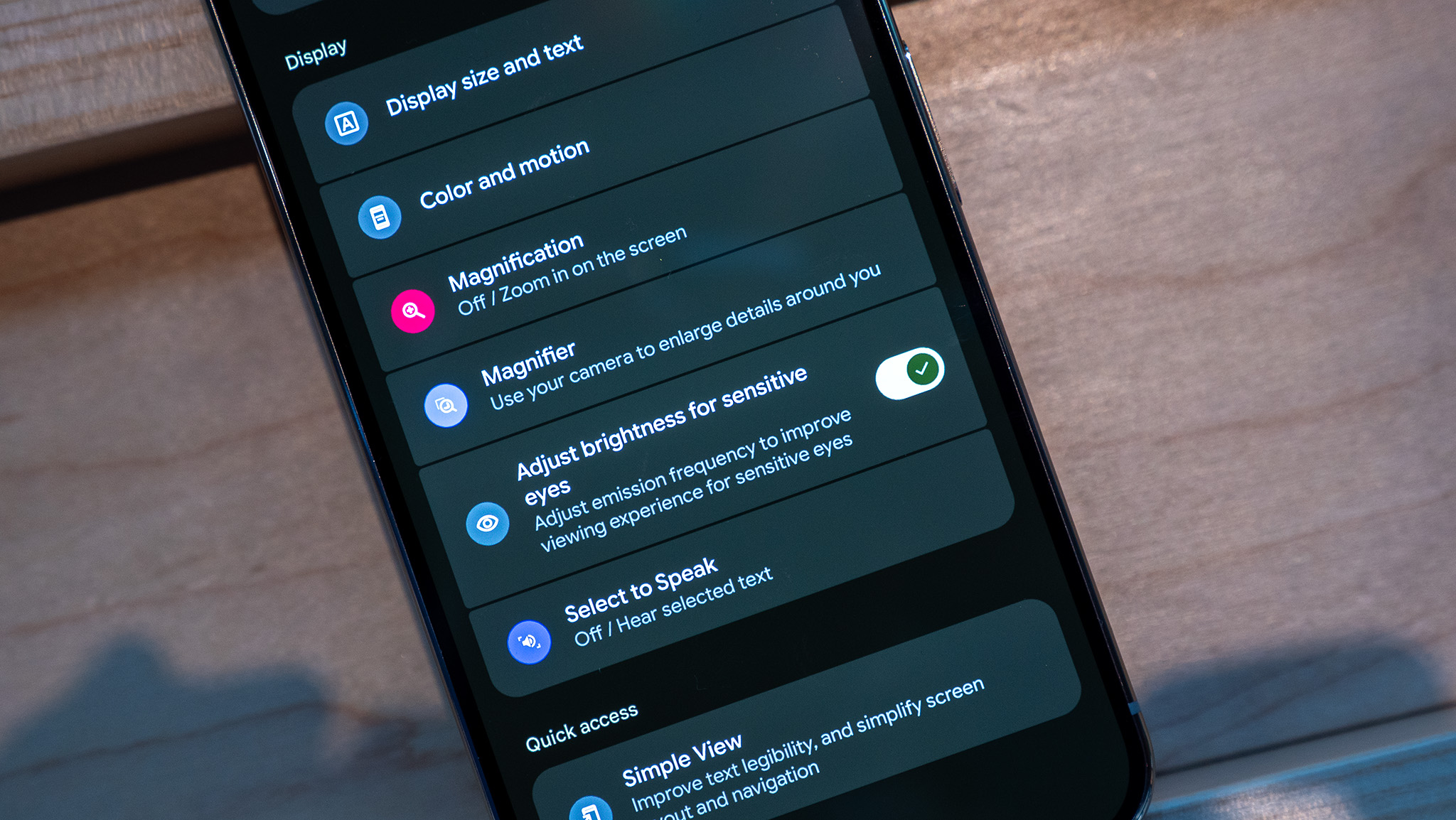
The Google Pixel 10 Pro has a number of exciting upgrades, but one that may be more important than most is a display change that could literally improve your health.
That upgrade is higher pulse width modulation (PWM) dimming, the rapid flickering that OLED screens use to control their brightness. While the human eye can't pick it up, low PWM rates can cause headaches and eye strain, but Google's implemented a solution with the Pixel 10 Pro, as spotted by Android Central and teased by leaks prior to the phone's launch.

A new "Adjust brightness for sensitive eyes" option can now be found in the Settings menu. Enabling this setting increases the PWM rate from 240Hz to 480Hz, according to AC's testing.
Rival Android brands like OnePlus and Honor have high PWM dimming on by default, with the OnePlus 13 reaching a much higher 2,160Hz. Meanwhile, Samsung and Apple already operate at around 480Hz, leaving Google playing catch-up.
Sadly, this setting is apparently not available on the Pixel 10, nor to the Pixel 10 Pro Fold's outer display. But at least the foldable does offer the enhanced PWM frequency on its inner display.
There's still work to be done
Our friends at Android Central are strong advocates for increased PWM sensitivity on smartphones, and we support it, too. However, as AC's Nicholas Sutrich writes, there's a lot of room across the smartphone market for improvement. When you compare Google's optional 480Hz to OnePlus' default 2,160Hz, that's a big gap for Google to make up, but at least we're seeing progress towards that.
If you want a more holistic view of what Google's new hardware is capable of, then you can check out our Pixel 10 hands-on, Pixel 10 Pro and Pro XL hands-on, Pixel 10 Pro Fold hands-on and Pixel Watch 4 hands-on. And you can expect full reviews of all of these soon.
Follow Tom's Guide on Google News to get our up-to-date news, how-tos, and reviews in your feeds. Make sure to click the Follow button.

.png?w=600)





